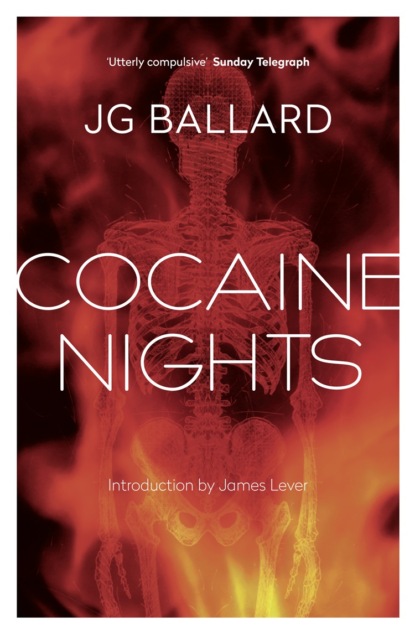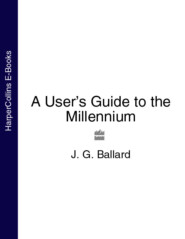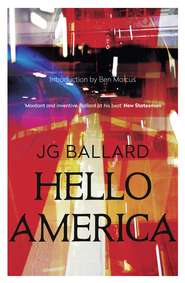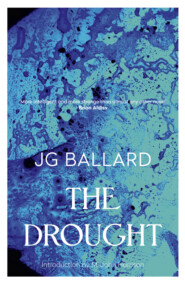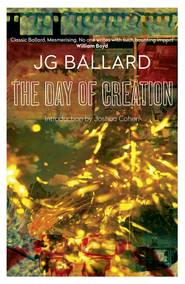По всем вопросам обращайтесь на: info@litportal.ru
(©) 2003-2024.
✖
Cocaine Nights
Настройки чтения
Размер шрифта
Высота строк
Поля
21 The Bureaucracy of Crime (#litres_trial_promo)
22 An End to Amnesia (#litres_trial_promo)
23 Come and See (#litres_trial_promo)
24 The Psychopath as Saint (#litres_trial_promo)
25 Carnival Day (#litres_trial_promo)
26 The Last Party (#litres_trial_promo)
27 An Invitation to the Underworld (#litres_trial_promo)
28 The Syndicates of Guilt (#litres_trial_promo)
Keep Reading (#litres_trial_promo)
Interview with J. G. Ballard (#litres_trial_promo)
About the Author (#litres_trial_promo)
By the Same Author (#litres_trial_promo)
About the Publisher (#litres_trial_promo)
INTRODUCTION BY JAMES LEVER (#u75d7a51b-a907-59a6-8475-e34f8586a927)
‘I COULD SUM UP the future in one word,’ J. G. Ballard said in 1994, during an interview collected in Extreme Metaphors, the indispensable anthology of Ballard’s conversation, ‘and that word is boring. The future is going to be boring.’ The gated communities of the Costa del Sol which form the backdrop of Cocaine Nights are the most extreme visualization in his whole body of work of what he elsewhere pictured as ‘the whole planet … turning into a vast Switzerland’. Here, in the ‘fortified enclaves’ where ‘all space has been internalized’, none of the holiday villas even look out to the sea, a hundred yards distant. ‘The residents of the Costa del Sol lived in an eventless world … a world beyond boredom, with no past, no future and a diminishing present … Nothing could ever happen in this affectless realm.’ They are ‘refugees from time … needing only that part of the external world that was distilled from the sky by their satellite dishes … already the ghosts of themselves.’ One of the great and disorienting pleasures of reading Ballard – and especially disorienting in an essentially realistic book like Cocaine Nights – is finding oneself at a loss to identify exactly where the surreal or fantastical begins, or if indeed it even has. Passages that read like wild satirical exaggeration solidify, on second glance, into clear-eyed reportage.
Ballard might have dreamed up these deserted pueblos, ‘their architecture dedicated to the abolition of time’, using the de Chiricos and Hoppers his imagination was stocked with, but in fact he knew the resorts of the Costas well. By the time he wrote Cocaine Nights, he’d been making trips to the Mediterranean for over thirty years, taking annual family holidays in Marbella, and then, when the children had grown up, on the French Riviera with his partner Claire Walsh. ‘I’m always much happier in the south – Spain, Greece – than I am anywhere else,’ he remarked, Englishly. These holidays helped generate several precursors to Cocaine Nights, beginning with the abandoned Costa Brava of ‘Low-Flying Aircraft’ (1975) and the Hitchcockianly erotic ‘The 60 Minute Zoom’ (1976) – two little masterpieces – and then a pair of more closely related stories, ‘Having a Wonderful Time’ (1978) and ‘The Largest Theme Park in the World’ (1989).
The former may well be inspired by the collapse in August 1974 of the Court Line group, pioneers of the cheap-and-cheerful package-tour, which left 50,000 Britons marooned on the beaches of the Med, far from the stagflation and three-day week of home. It describes, via a series of postcards sent by a British tourist ostensibly stranded in the Canaries, the clandestine relocation of the economically superfluous classes of Europe to the continent’s beach-resorts, where these unemployables, unaware of the huge experiment in which they’re participating, blossom into creative fulfilment. The later story inverts the idea: Europe’s holidaymakers refuse to return home, creating a militant totalitarian society based around the cult of physical perfection and occupying ‘the linear city of the Mediterranean coast, some 3,000 miles long and 300 metres wide’ – a typically catchy image Ballard had been chewing over and trying out for fifteen years. And throughout Cocaine Nights you can hear the authorial thrill at the sheer infinity-tending scale of this two-dimensional city – ‘a hundred miles of white cement’, ‘the surfaces of a thousand swimming pools’, ‘fifty thousand Brits, one huge liver perfused by vodka and tonic’, ‘a billion balconies facing the sun’. The coastal megalopolis is a zone of infinite repetition, the sort of non-space that barely possesses any geographical reality at all. But it is also therefore a space vulnerable to sudden and rapidly-spreading psychic contagions. This is the sort of place that excites Ballard – since the greater the homogeneity of an environment or the inner-space of its inhabitants, as with the African desert of The Day of Creation or the Shepperton of The Unlimited Dream Company, the greater the potential transformative energy of the eventual psychic dam-burst. That’s the excitement that powers Cocaine Nights, lined with a dismay which perhaps explains why this particular novel’s iteration of that stock Ballard character, the messianic or psychopathic anti-hero intent on waking a community from its slumber, is one of its author’s most sympathetic utopians.
In fact, despite the multiple murders at its heart, this is one of Ballard’s most relaxed works, inaugurating what you might call his late period – that slight flattening of style and deceleration which mark his four last, and four longest, fictions. Artists’ late periods, so the cliché goes, are often signalled by a wintry brevity that denotes either an impatience with inessentials or a general loss of energy; on the other hand, writers (and especially those who flirt with genre-structures) can equally tend to a late-middle-aged spread, a comfortable couple of inches around the narrative waistline. This is Ballard’s beach read, designed to be picked up at an airport, consumed poolside and left, mottled with Ambre Solaire and disintegrating, its binding-glue long melted, on a shelf in the villa between the Dibdins and Rendells it is slyly constructed to resemble. For a novel about leisure – Ballard’s only full-length work explicitly about this lifelong preoccupation – the subtly parodic chunky-thriller rhythms and unhurried mystery-story plotting are a perfect fit: it’s a holiday book satirizing the ritual of the holiday book. Even Cocaine Nights’ title, which the reader will soon realize is barely relevant, functions as camouflage – an artfully slovenly mass-market formulation that ought to be embossed on the cover in gold foil, advertising cheap thrills it has no intention of delivering. (Ballard’s timing is as uncanny as ever: 1996, the date of publication, is pretty much exactly when cocaine-use in Britain could be said to have definitively shifted from a supposedly glamorous drug-of-the-elite to the everyday mainstream.) And the book, Ballard in a slightly mellower key, was a hit – its author’s biggest seller after Empire of the Sun and Crash.
Unforgiving or even uncharitable as the vision of opiate-addicted expats ‘sleeping through the longest afternoon in the world’ may sound, the leavening kindness always audible in Ballard’s prose, that bass-note of decency, occasionally seems to modulate in Cocaine Nights into something approaching tenderness. In Super-Cannes, Ballard takes a moment to allow his two main characters to trade some astutely-chosen quotes from Cyril Connolly’s The Unquiet Grave – ‘“Peeling off the kilometres to the tune of ‘Blue Skies’, sizzling down the … Nationale Sept, the plane trees going …” “Sha-sha-sha …” I completed, “She with the Michelin beside me, a handkerchief binding her hair …”’ To a surprising number of British readers of the immediate post-war period, those very sentences were a touchstone expressing the atavistic national yearning to travel south that must at the time have seemed almost like a destiny. The speed with which that thrilling promise of renewal and self-transformation was superseded by a kind of reflex contempt for the Ballardian realities of mass tourism (can any word have been pronounced more sneeringly by the British mouth than ‘Torremolinos’?) has ever since seemed like an obscurely shaming wrinkle in the national unconscious – witness the way the BBC’s early-nineties soap Eldorado, confidently premised on the abiding glamour of the Costa del Sol, was silenced by a collective groan of disgust, and not just because it was so staggeringly boring. Ballard’s memory of the innocence and excitement of the British population’s first collision with the Mediterranean is what gives Cocaine Nights its most intriguing effect – which is that the novel seems to be set simultaneously in the 1990s and the mid-century.
Of course, this effect is a signature of Ballard’s genius, never more richly and bewilderingly used than in the retro-futurism (a completely inadequate term for the intricate swirl of history Ballard blends together) of Vermilion Sands. But in the non-surreal setting of Cocaine Nights, it becomes central to the book’s peculiar and wrong-footing affect. ‘I have often thought,’ Ballard said, casually lapidary as usual, ‘that writers don’t necessarily write their books in their real order. Empire of the Sun may be my first novel, which I just happened to write when I was fifty-four. It may well be that Vermilion Sands is my last book.’ In which case, Cocaine Nights was written some time in the sixties by a young Ballard under the influence of Alistair MacLean and Desmond Bagley. The slightly stilted, thrillery dialogue, with its old-fashioned overuse of the vocative, is peppered with Little Englander near-archaisms: ‘the sheer neck of it’, ‘their parties are rather good shows’, ‘Good God!’ and the cultural allusions of an earlier generation: ‘Chin up. This isn’t the House of Usher’, ‘You could become … the Savonarola of the Costa del Sol.’ Elsewhere, disorientating obsolescences abound: ‘cine-photography’, ‘porno-cassette’, ‘disco’, ‘a signed photograph of a punk rock group’. The anti-hero is dismissed with an incomparably 1970s sentence: ‘The tennis bum who’s taken an Open University course in Cultural Studies and thinks paperback sociology is the answer to everything.’
One could argue that this is simply the way Ballard writes, and that many of his anachronisms are merely ingrained, or oversights, but that would be to miss the lovely conceptual coup of Cocaine Nights. The community of Estrella de Mar, roused from the narcotized daze of the Costa del Sol by the interventions of the novel’s charming messiah/psychopath, doesn’t wake up to the present tense so much as a nostalgic dream of the twentieth century’s greatest hits. ‘In many ways Estrella de Mar was the halcyon county-town England of the mythical 1930s, brought back to life and moved south into the sun.’ Ballard’s quietly hilarious emblem of the community’s spiritual awakening and artistic efflorescence is amateur dramatics: everywhere you go in Estrella de Mar you will find a once cutting-edge play – Beckett, Orton, Eliot, Stoppard – being proudly revived as proof of cultural vigour. (‘“A month ago they were dozing in their bedrooms … waiting for death. Now they’re putting on the plays of Harold Pinter. Isn’t that an advance?” “I suppose so.”’) The open-air cinema shows Renoir and classics from the Golden Age. The disco isn’t a mislabelled nightclub, it’s a disco. It is a porno-cassette, not a porn-tape. The whole place is a fondly observed anachronism, and so is the novel in which you’re reading about it. The cliffhangers, red-herrings and misdirections of Cocaine Nights’ murder-mystery structure are so cursory and obvious, and the plot-recaps so obsessively frequent, that they amount to a wry subversion of the novel’s own pretensions to old-fashioned page-turning pleasure: if you aren’t a Ballard devotee, you’ll probably have worked out whodunnit after about a hundred pages. If you are, you’ll know by the end of the first chapter. It’s a book about boredom, or boredom as an outcome of capitalism’s natural tendency to isolate and encourage an obsession with security in its consumers, and about the stimuli required to counteract that. As such the book is happy to enact those stimuli itself. A glance down the list of chapter-titles (and one should always take time to read Ballard’s Contents pages, which constitute introductory poems to his novels) gives you a selection of tawdry but irresistible enticements – ‘The Scent of Death’, ‘The Pornographic Film’, ‘The Lady by the Pool’, ‘Cocaine Nights’ – each one the title of a cheap thriller, good for the beach.
Meanwhile, the novel’s ostensible centre of interest, a Durkheimian interrogation of the importance of transgression and crime to social cohesion, plays out according to a classic Ballard schema: there’s a psychopathic Prospero figure, a protagonist who comes to act as his Ariel, an authorial ambivalence about the violence and uncontrollability of the transformative magic, a climactic blood-sacrifice demanded by the tribe. But this takes place in a more restrained register than usual: armies of robot American presidents do not assassinate the incumbent, birds of paradise don’t throng the Shepperton skies, Alsatians are not on the menu. In truth, this is not brick-through-your-mind Ballard. Instead, it offers the beautiful spectacle of an accurate prophet come face to face with a future he intuited and which is already receding into the past, growing dated. Ballard strolls around the leisureworld of Estrella de Mar (and what a gorgeous name, by the way: like one of those reclusive screen-goddesses who inhabit Vermilion Sands) as if delighted to find himself for the first time in a (pretty much) realistic landscape which contains so many of his imagination’s old obsessions: here are paranoid zones of surveillance, home-made pornography on an industrial scale, blood-spattered tennis courts, avenues of empty villas, universal recreational drug-use and so many swimming pools (both full and empty) he can put one on virtually every page. Even for Ballard, Cocaine Nights is a novel of endless, artful repetitions and reiterations, as if he simply can’t bear to stop taking holiday snap after holiday snap after holiday snap of this place so beautiful it’s like something he once made up.
Paris, 2014
1 Frontiers and Fatalities (#ulink_e1109d8b-f90c-5669-987e-d96847ac1ba3)
CROSSING FRONTIERS is my profession. Those strips of no-man’s land between the checkpoints always seem such zones of promise, rich with the possibilities of new lives, new scents and affections. At the same time they set off a reflex of unease that I have never been able to repress. As the customs officials rummage through my suitcases I sense them trying to unpack my mind and reveal a contraband of forbidden dreams and memories. And even then there are the special pleasures of being exposed, which may well have made me a professional tourist. I earn my living as a travel writer, but I accept that this is little more than a masquerade. My real luggage is rarely locked, its catches eager to be sprung.
Gibraltar was no exception, though this time there was a real basis for my feelings of guilt. I had arrived on the morning flight from Heathrow, making my first landing on the military runway that served this last outpost of the British Empire. I had always avoided Gibraltar, with its vague air of a provincial England left out too long in the sun. But my reporter’s ears and eyes soon took over, and for an hour I explored the narrow streets with their quaint tea-rooms, camera shops and policemen disguised as London bobbies.
Gilbratar, like the Costa del Sol, was off my beat. I prefer the long-haul flights to Jakarta and Papeete, those hours of club-class air-time that still give me the sense of having a real destination, the great undying illusion of air travel. In fact we sit in a small cinema, watching films as blurred as our hopes of discovering somewhere new. We arrive at an airport identical to the one we left, with the same car-rental agencies and hotel rooms with their adult movie channels and deodorized bathrooms, side-chapels of that lay religion, mass tourism. There are the same bored bar-girls waiting in the restaurant vestibules who later giggle as they play solitaire with our credit cards, tolerant eyes exploring those lines of fatigue in our faces that have nothing to do with age or tiredness.
Gibraltar, though, soon surprised me. The sometime garrison post and naval base was a frontier town, a Macao or Juarez that had decided to make the most of the late twentieth century. At first sight it resembled a seaside resort transported from a stony bay in Cornwall and erected beside the gatepost of the Mediterranean, but its real business clearly had nothing to do with peace, order and the regulation of Her Majesty’s waves.
Like any frontier town Gibraltar’s main activity, I suspected, was smuggling. As I counted the stores crammed with cut-price video-recorders, and scanned the nameplates of the fringe banks that gleamed in the darkened doorways, I guessed that the economy and civic pride of this geo-political relic were devoted to rooking the Spanish state, to money-laundering and the smuggling of untaxed perfumes and pharmaceuticals.
The Rock was far larger than I expected, sticking up like a thumb, the local sign of the cuckold, in the face of Spain. The raunchy bars had a potent charm, like the speedboats in the harbour, their powerful engines cooling after the latest high-speed run from Morocco. As they rode at anchor I thought of my brother Frank and the family crisis that had brought me to Spain. If the magistrates in Marbella failed to acquit Frank, but released him on bail, one of these sea-skimming craft might rescue him from the medieval constraints of the Spanish legal system.
Later that afternoon I would meet Frank and his lawyer in Marbella, a forty-minute drive up the coast. But when I collected my car from the rental office near the airport I found that an immense traffic jam had closed the border crossing. Hundreds of cars and buses waited in a gritty haze of engine exhaust, while teenaged girls grizzled and their grandmothers shouted at the Spanish soldiers. Ignoring the impatient horns, the Guardia Civil were checking every screw and rivet, officiously searching suitcases and supermarket cartons, peering under bonnets and spare wheels.
‘I need to be in Marbella by five,’ I told the rental office manager, who was gazing at the stalled vehicles with the serenity of a man about to lease his last car before collecting his pension. ‘This traffic jam has a permanent look about it.’
‘Calm yourself, Mr Prentice. It can clear at any time, when the Guardia realize how bored they are.’
‘All these regulations …’ I shook my head over the rental agreement. ‘Spare bulbs, first-aid kit, fire extinguisher? This Renault is better equipped than the plane that flew me here.’
‘You should blame Cadiz. The new Civil Governor is obsessed with La Linea. His workfare schemes are unpopular with the people there.’
‘Too bad. So there’s a lot of unemployment?’
‘Not exactly. Rather too much employment, but of the wrong kind.’
‘The smuggling kind? A few cigarettes and camcorders?’
‘Not so few. Everyone at La Linea is very happy – they hope that Gibraltar will remain British for ever.’
I had begun to think about Frank, who remained British but in a Spanish cell. As I joined the line of waiting cars I remembered our childhood in Saudi Arabia twenty years earlier, and the arbitrary traffic checks carried out by the religious police in the weeks before Christmas. Not only was the smallest drop of festive alcohol the target of their silky hands, but even a single sheet of seasonal wrapping paper with its sinister emblems of Yule logs, holly and ivy. Frank and I would sit in the back of our father’s Chevrolet, clutching the train sets that would be wrapped only minutes before we opened them, while he argued with the police in his sarcastic professorial Arabic, unsettling our nervous mother.
Smuggling was one activity we had practised from an early age. The older boys at the English school in Riyadh talked among themselves about an intriguing netherworld of bootleg videos, drugs and illicit sex. Later, when we returned to England after our mother’s death, I realized that these small conspiracies had kept the British expats together and given them their sense of community. Without the liaisons and contraband runs our mother would have lost her slipping hold on the world long before the tragic afternoon when she climbed to the roof of the British Institute and made her brief flight to the only safety she could find.
At last the traffic had begun to move, lurching forward in a noisy rush. But the mud-stained van in front of me was still detained by the Guardia Civil. A soldier opened the rear doors and hunted through cardboard cartons filled with plastic dolls. His heavy hands fumbled among the pinkly naked bodies, watched by hundreds of rocking blue eyes.
Irritated by the delay, I was tempted to drive around the van. Behind me a handsome Spanish woman sat at the wheel of an open-topped Mercedes, remaking her lipstick over a strong mouth designed for any activity other than eating. Intrigued by her lazy sexual confidence, I smiled as she fingered her mascara and lightly brushed the undersides of her eyelashes like an indolent lover. Who was she – a nightclub cashier, a property tycoon’s mistress, or a local prostitute returning to La Linea with a fresh stock of condoms and sex aids?
She noticed me watching her in my rear-view mirror and snapped down her sun vizor, waking both of us from this dream of herself. She swung the steering wheel and pulled out to pass me, baring her strong teeth as she slipped below a no-entry sign.
I started my engine and was about to follow her, but the soldier fumbling among the plastic dolls turned to bellow at me.
‘Acceso prohibido …!’
He leaned against my windshield, a greasy hand smearing the glass, and saluted the young woman, who was turning into the police car park beside the checkpoint. He glared down at me, nodding to himself and clearly convinced that he had caught a lecherous tourist in the act of visually molesting the wife of his commanding officer. He moodily flicked through the pages of my passport, unimpressed by the gallery of customs stamps and visas from the remotest corners of the globe. Each frontier crossing was a unique transaction that defused the magic of any other.
I waited for him to order me from the car and carry out an aggressive body-search, before settling down to dismande the entire Renault until it lay beside the road like a manufacturer’s display kit. But he had lost interest in me, his spare eye noticing a coach filled with migrant Moroccan workers who had taken the ferry from Tangier. Abandoning his search of the van and its cargo of dolls, he advanced upon the stoical Arabs with all the menace and dignity of Rodrigo Diaz out-staring the MOOR at the Battle of Valencia.
I followed the van as it sped towards La Linea, rear doors swinging and the dolls dancing together with their feet in the air. Even the briefest confrontation with police at a border crossing had the same disorienting effect on me. I imagined Frank in the interrogation cells in Marbella at that very moment, faced with the same accusing eyes and the same assumption of guilt. I was a virtually innocent traveller, carrying no contraband other than a daydream of smuggling my brother across the Spanish frontier, yet I felt as uneasy as a prisoner breaking his parole, and I knew how Frank would have responded to the trumped-up charges that had led to his arrest at the Club Nautico in Estrella de Mar. I was certain of his innocence and guessed that he had been framed on the orders of some corrupt police chief who had tried to extort a bribe.
I left the eastern outskirts of La Linea and set off along the coast road towards Sotogrande, impatient to see Frank and reassure him that all would be well. The call from David Hennessy, the retired Lloyd’s underwriter who was now the treasurer of the Club Nautico, had reached me in my Barbican flat the previous evening. Hennessy had been disturbingly vague, as if rambling to himself after too much sun and sangria, the last person to inspire confidence.





